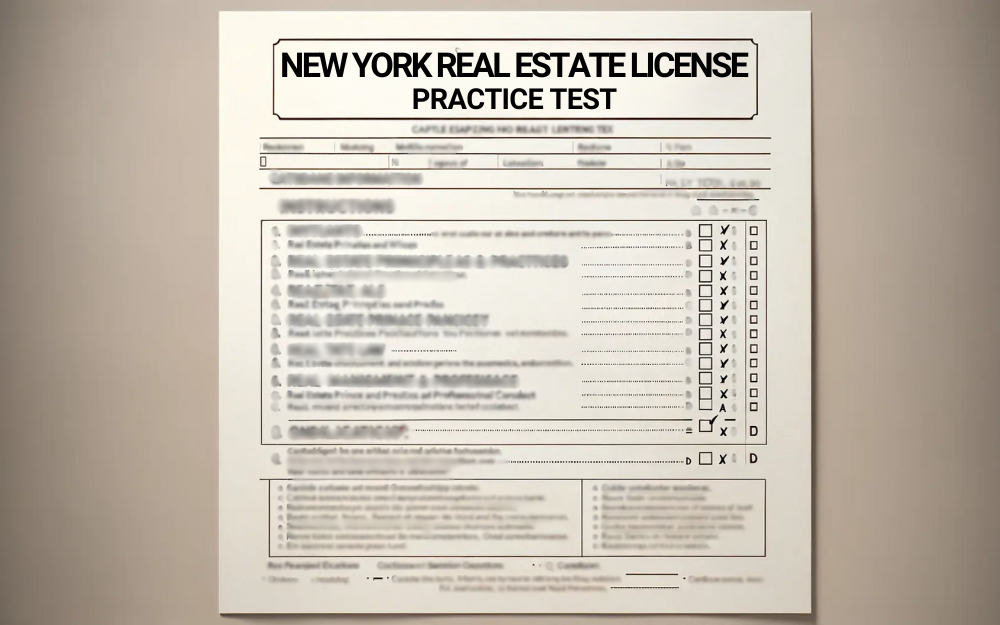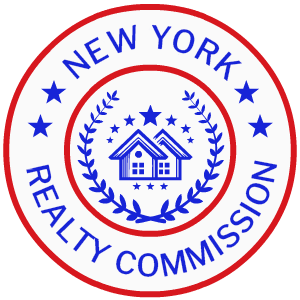
Determine your answer, then click the arrow to see the correct response.
What Does "Closing Costs" Refer to in a Real Estate Transaction?
A) The cost of repairs requested by the buyer
B) The seller's remaining mortgage balance
C) The expenses over and above the property’s price that buyers and sellers normally incur to complete a real estate transaction
D) The commission fees paid to real estate agents
Correct Answer: C) The expenses over and above the property’s price that buyers and sellers normally incur to complete a real estate transaction
Explanation: Closing costs are additional expenses incurred by buyers and sellers during the transfer of property ownership. These can include loan origination fees, title insurance, escrow fees, and legal costs.
What Does "Due Diligence" Refer to in a Real Estate Transaction?
A) The effort to find the best financing options
B) The buyer's investigation and evaluation of a property
C) The process of setting up escrow accounts
D) The seller's preparation of the property for sale
Correct Answer: B) The buyer’s investigation and evaluation of a property
Explanation: Due diligence is the process by which a buyer investigates and evaluates a property before finalizing the purchase. This can include inspections, reviewing documents, and verifying information related to the property.
A Property Was Purchased for $200,000 and Later Sold for $260,000. What Was the Percentage Increase in the Property’s Value?
A) 25%
B) 30%
C) 35%
D) 40%
Correct Answer: B) 30%
Explanation: The increase in value is $260,000 – $200,000 = $60,000. The percentage increase is ($60,000 / $200,000) × 100% = 30%.
What Is "Capitalization Rate" or "Cap Rate" in Real Estate?
A) The rate at which property value increases annually
B) The annual return on an investment property, calculated by dividing the net operating income by the property’s current market value
C) The interest rate on a mortgage loan
D) The percentage of a loan amount a borrower must pay as down payment
Correct Answer: B) The annual return on an investment property, calculated by dividing the net operating income by the property’s current market value
Explanation: The capitalization rate, or cap rate, is used to estimate the investor’s potential return on an investment property by dividing the net operating income (NOI) by the current market value of the property.
A Landlord in New York City Intends To Raise the Rent on a Tenant's Apartment by 6%. The Tenant Has Lived in the Apartment for Three Years. What Is the Minimum Amount of Notice the Landlord Must Provide to the Tenant?
A) 30 days
B) 60 days
C) 90 days
D) 120 days
Correct Answer: C) 90 days
Explanation: According to New York Real Property Law § 226-C, if a tenant has occupied the unit for more than two years or has a lease term of at least two years, the landlord must provide at least 90 days’ notice before raising the rent by 5% or more.
A Real Estate Agent in New York Is Helping a Buyer Purchase a Property. The Agent Provides the Buyer With the New York State Disclosure Form for Buyer and Seller. What Must the Agent Do if the Buyer Refuses To Sign the Acknowledgment of Receipt?
A) Proceed with the transaction without any further steps
B) Terminate the transaction immediately
C) Note the refusal in the transaction file and maintain a copy for three years
D) Contact the seller for further instructions
Correct Answer: C) Note the refusal in the transaction file and maintain a copy for three years
Explanation: New York Real Property Law § 443 requires agents to maintain a copy of the signed acknowledgment of receipt of the disclosure form for at least three years. If the buyer refuses to sign, the agent must set forth a written declaration of the facts under oath and keep a copy for three years.
A Seller in New York Is Required To Complete a Property Condition Disclosure Statement. They Know the Property Is Located in a FEMA-Designated Floodplain. What Must the Seller Disclose About This Fact?
A) Nothing, as floodplain information is not required
B) Only if the buyer asks about it
C) That the property is located in a floodplain and any related federal requirements
D) That the property is insured against flood damage
Correct Answer: C) That the property is located in a floodplain and any related federal requirements
Explanation: New York Real Property Law § 462 requires sellers to disclose if any part of the property is located in a FEMA-designated floodplain and whether federal law requires flood insurance. This ensures buyers are aware of potential flood risks and insurance obligations.
A Rectangular Lot Measures 150 Feet by 200 Feet. How Many Acres Is the Lot? (1 Acre = 43,560 Square Feet)
A) 0.69 acres
B) 0.85 acres
C) 1.37 acres
D) 1.50 acres
Correct Answer: C) 1.37 acres
Explanation: The area of the lot is 150 feet × 200 feet = 30,000 square feet. Converting to acres: 30,000 / 43,560 ≈ 0.6887 acres ≈ 1.37 acres.
An Individual in New York Is Interested In Becoming a Real Estate Salesperson. They Are 19 Years Old and Have Never Been Convicted of a Crime. Are They Eligible for Licensure?
A) Yes, they meet all the requirements
B) No, because they must be at least 21 years old
C) No, because they must have a college degree
D) Yes, but only with a provisional license
Correct Answer: A) Yes, they meet all the requirements
Explanation: According to New York Real Property Law § 440-A, individuals must be over 18 years old to be eligible for a real estate salesperson license in New York. There are no additional age or educational requirements beyond this and not having a disqualifying criminal record.
A Tenant Association in New York City Is Authorized by the City's Housing Department To Manage Residential Properties Owned by the City. Do They Need To Obtain a Real Estate Broker's License To Manage These Properties?
A) Yes, all property managers must be licensed
B) No, if they receive written authorization from the city’s housing department
C) Yes, unless they manage fewer than 10 properties
D) No, if they are appointed by a court
Correct Answer: B) No, if they receive written authorization from the city’s housing department
Explanation: New York Real Property Law § 440-A exempts tenant associations and not-for-profit corporations authorized by the city’s housing department from needing a real estate broker’s license to manage city-owned residential properties.
